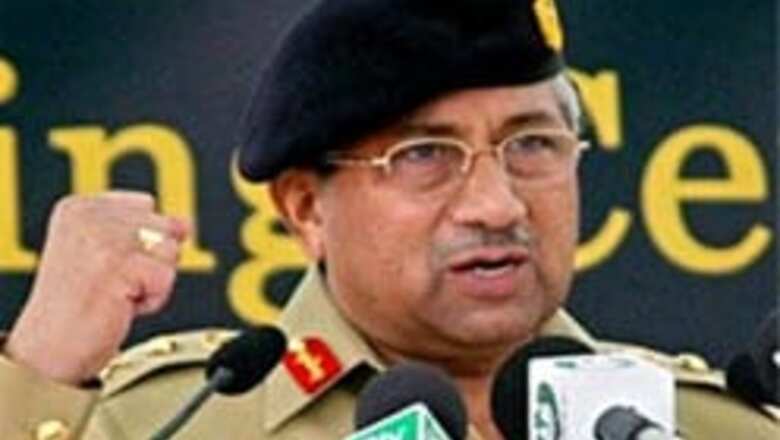
views
Police detained hundreds of Pakistani opposition figures and lawyers on Sunday as military ruler President Pervez Musharraf tried to stifle the outcry over the imposition of emergency powers. Here are some facts about Musharraf:
Early Life: The second of three brothers, Musharraf was born into a middle class Muslim family in India in August 1943. His family moved to the newly created majority-Muslim state of Pakistan following India's independence and partition in 1947. -- He spent seven years in Turkey, during his civil servant father's posting to Ankara. In 1956 the family settled in Karachi.
Military Career: Entering the Pakistan Military Academy in 1961, the keen sportsman first saw action in the 1965 war against India and was decorated for gallantry. He had to endure the army's humiliating defeat by India in the 1971 war and served for seven years in Pakistan's special service commando group.
Bloodless Coup: Promoted to the rank of general and named army chief in October 1998, Musharraf seized power from then Prime Minister Nawaz Sharif in 1999 in a bloodless coup. He first led the country as chief executive and then won a five-year presidential term in a 2002 referendum critics say was rigged. One of President George Bush's most important non-NATO allies in Washington's war on terrorism, supporters painted Musharraf as a strong leader who can save Pakistan's moderate Muslim majority from militant, religious extremism. -- However, a bloody army assault on Islamabad's Red Mosque in July, during which at least 105 people were killed, led to a rise in attacks by Islamist militants that have killed at least 800 people.
New Elections and State of Emergency: Musharraf won most votes in presidential elections on Oct 6, but was waiting for the Supreme Court to confirm the legality of his re-election. The court met on Nov. 2 and the next day Musharraf imposed emergency rule. -- Musharraf said he acted in response to rising Islamist militancy in nuclear-armed Pakistan and what he called a paralysis of government by judicial interference. -- Most Pakistanis and foreign diplomats however believe his main motive was to prevent the Supreme Court invalidating his re-election while still army chief.

















Comments
0 comment